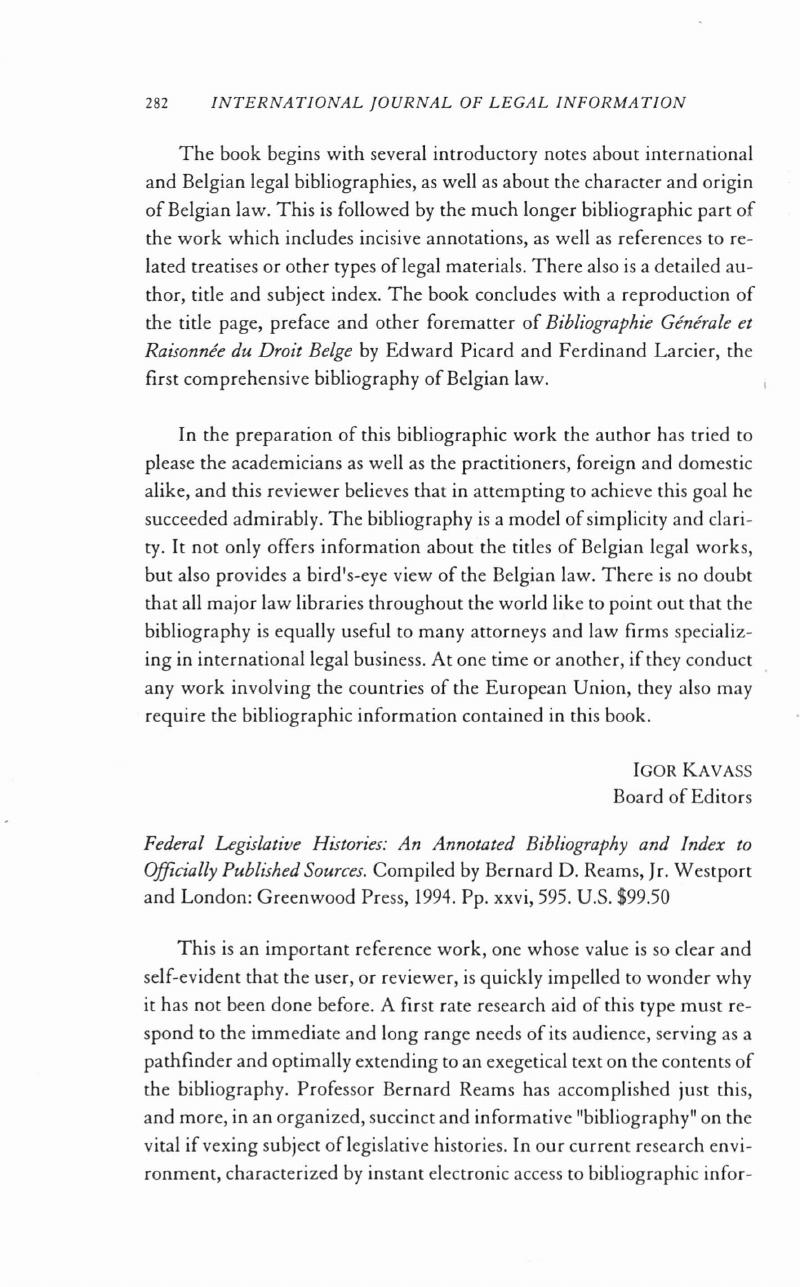No CrossRef data available.
Published online by Cambridge University Press: 28 February 2019

1. The United Kingdom and Commonwealth judiciaries long ago disposed of the persuasive authority of “legislative intent”, asserting firmly that judges were capable of determining meaning and construing legislation. In civil law systems, where legislation is less subject to judicial interpretation, a great deal of scholarly attention is focussed on the historical background of the major 19th century code compilations and revisions (and their more recent counterparts in Italy and The Netherlands); but ordinary, ongoing legislation does not generate such interest in interpretation.Google Scholar
2. There can be little doubt that American legislation, detailed and complex, is often rushed in the drafting process, such result of compromises and adjustments, can often benefit from analysis and elucidation based on the, extensive available legislative documentation. Professor Reams, in his introduction, outlines the controversies and conflicting views on the importance attached by the judiciary to legislative histories and intent. He provides contrasting citations from scholarly critics who hold different opinions.Google Scholar